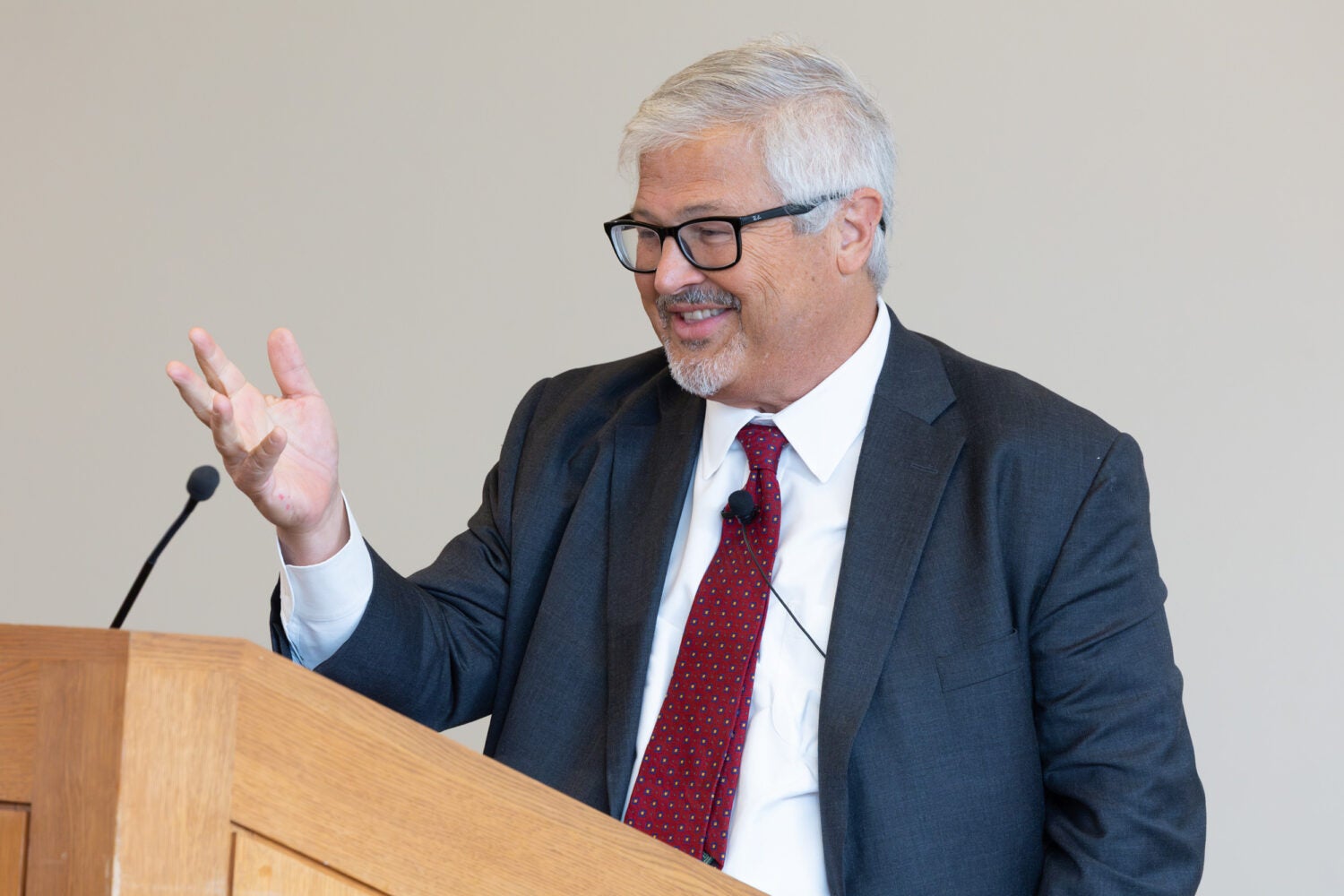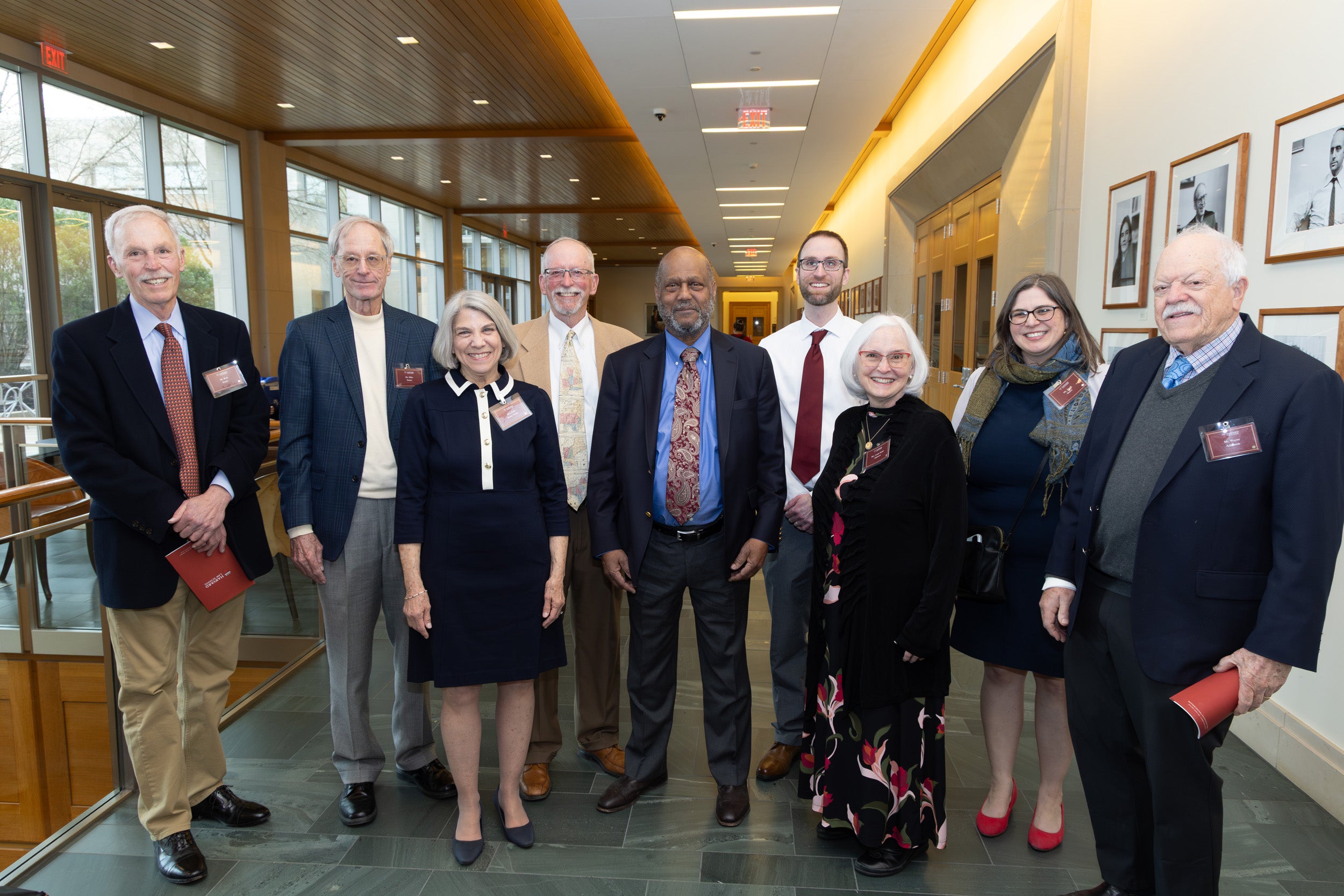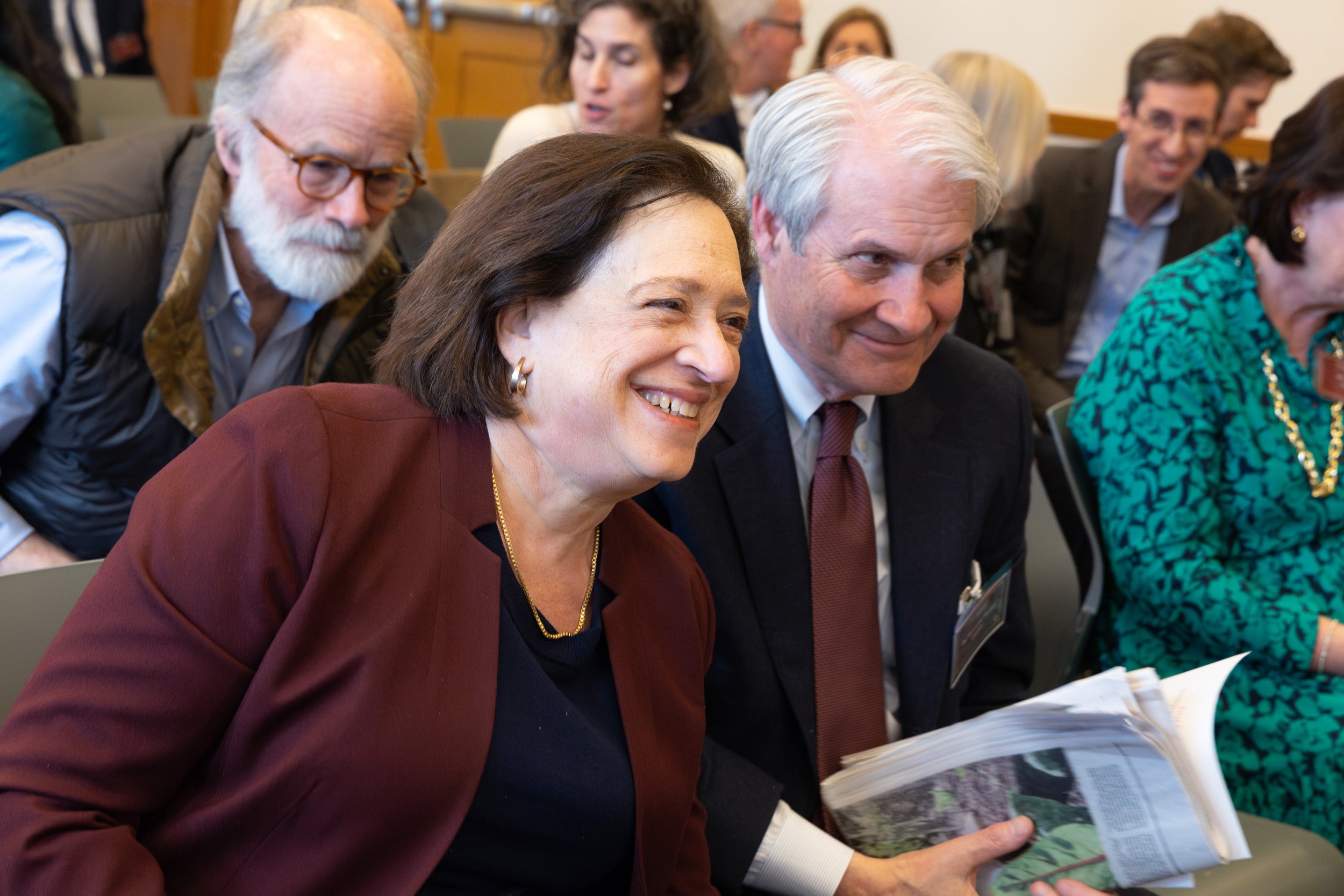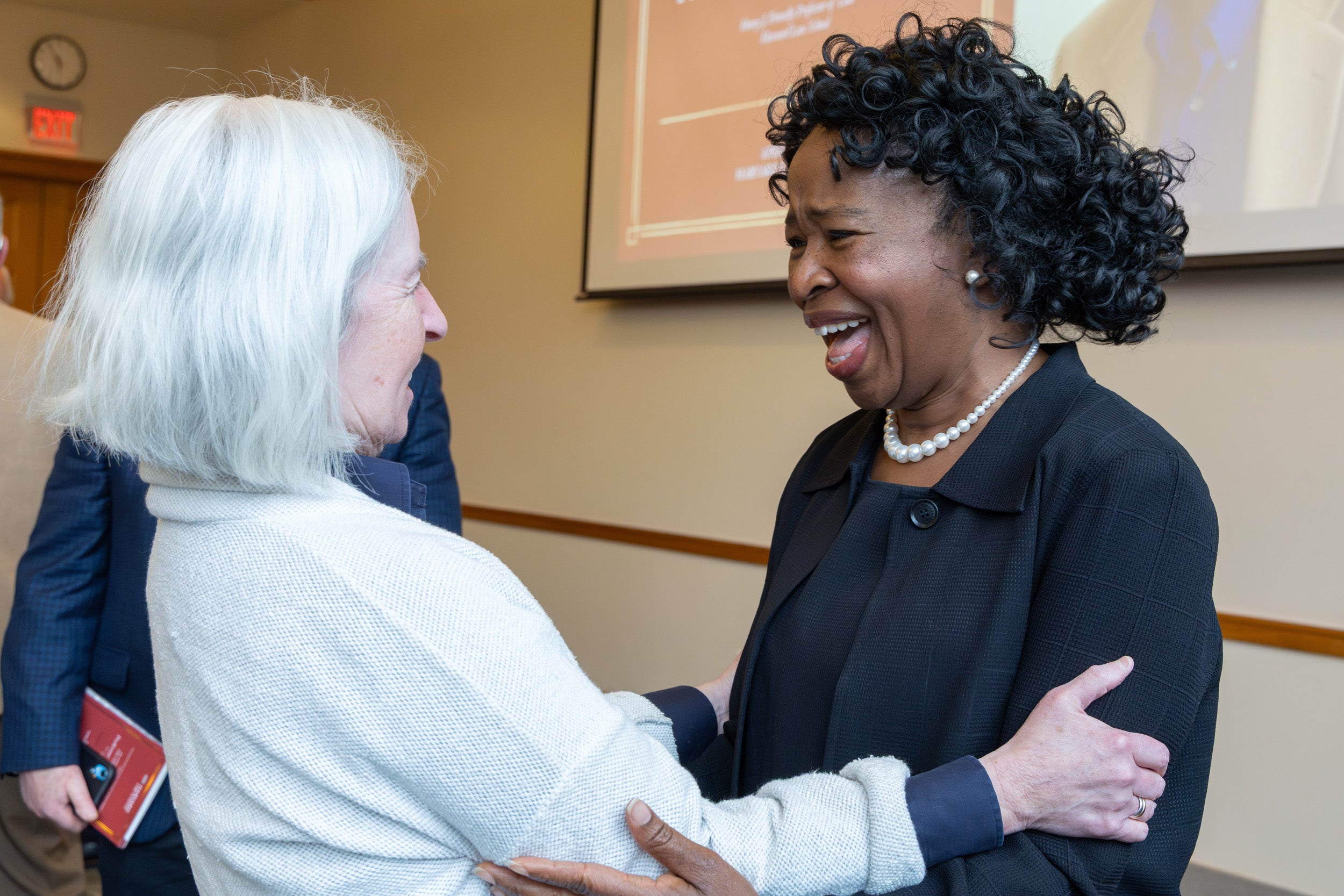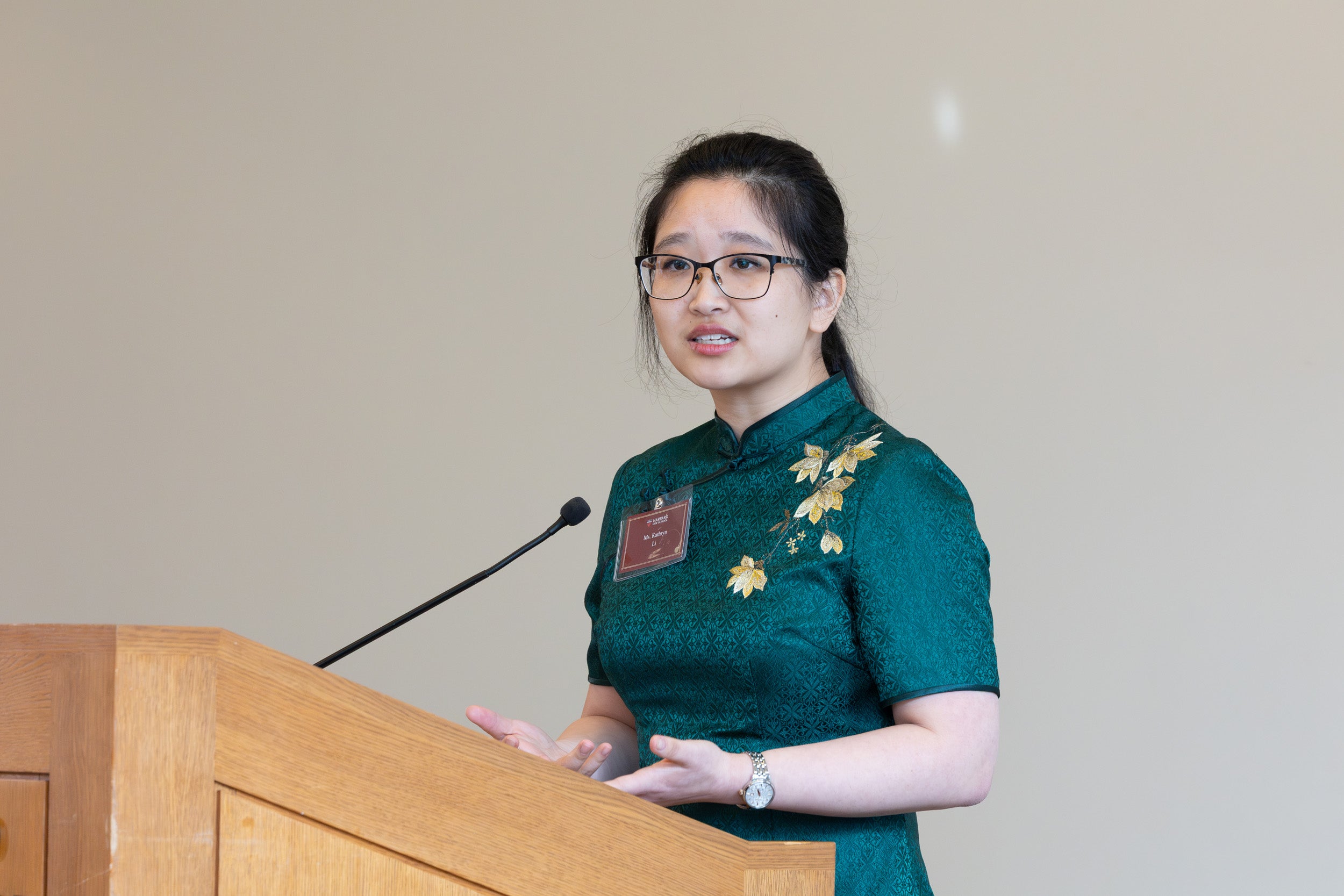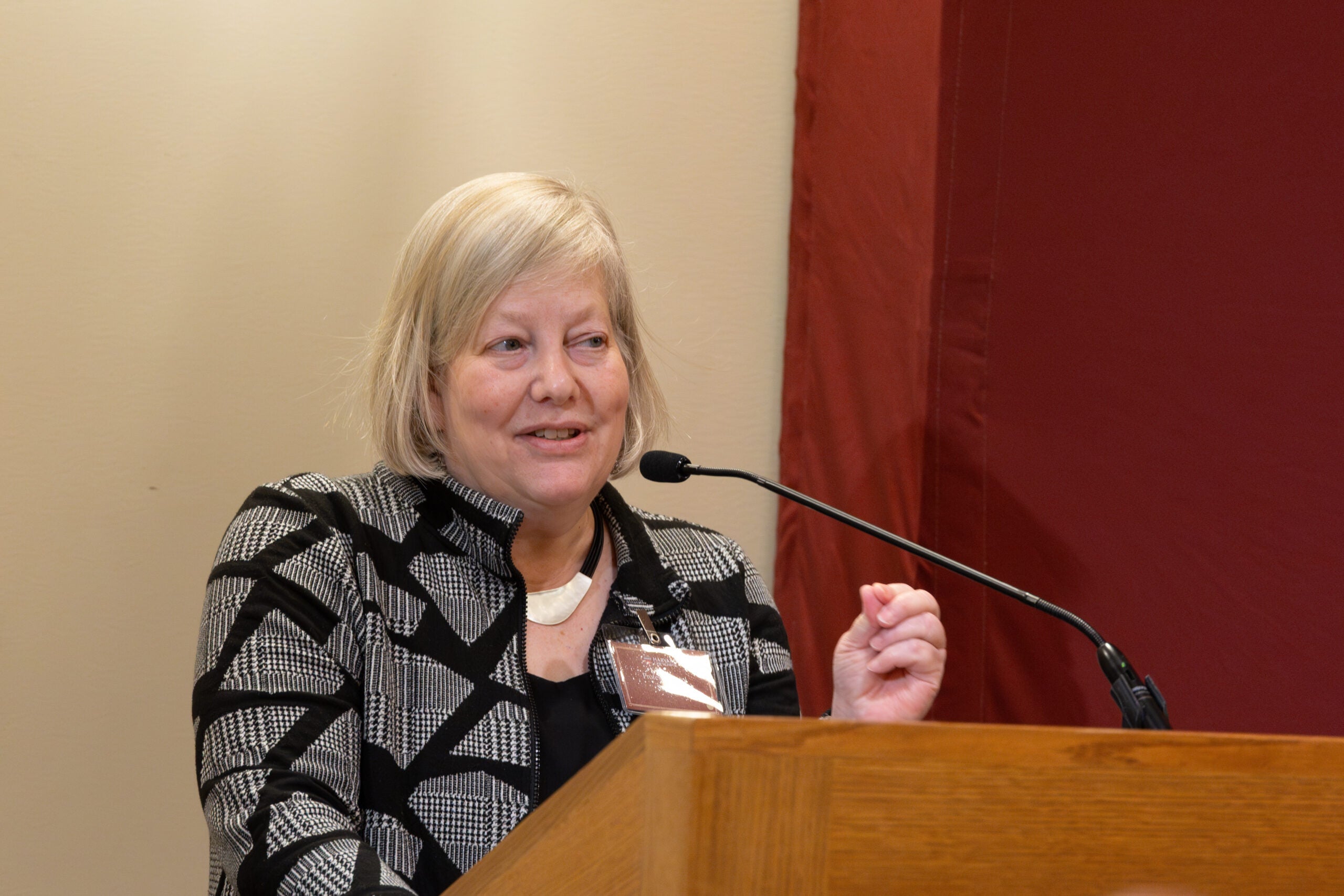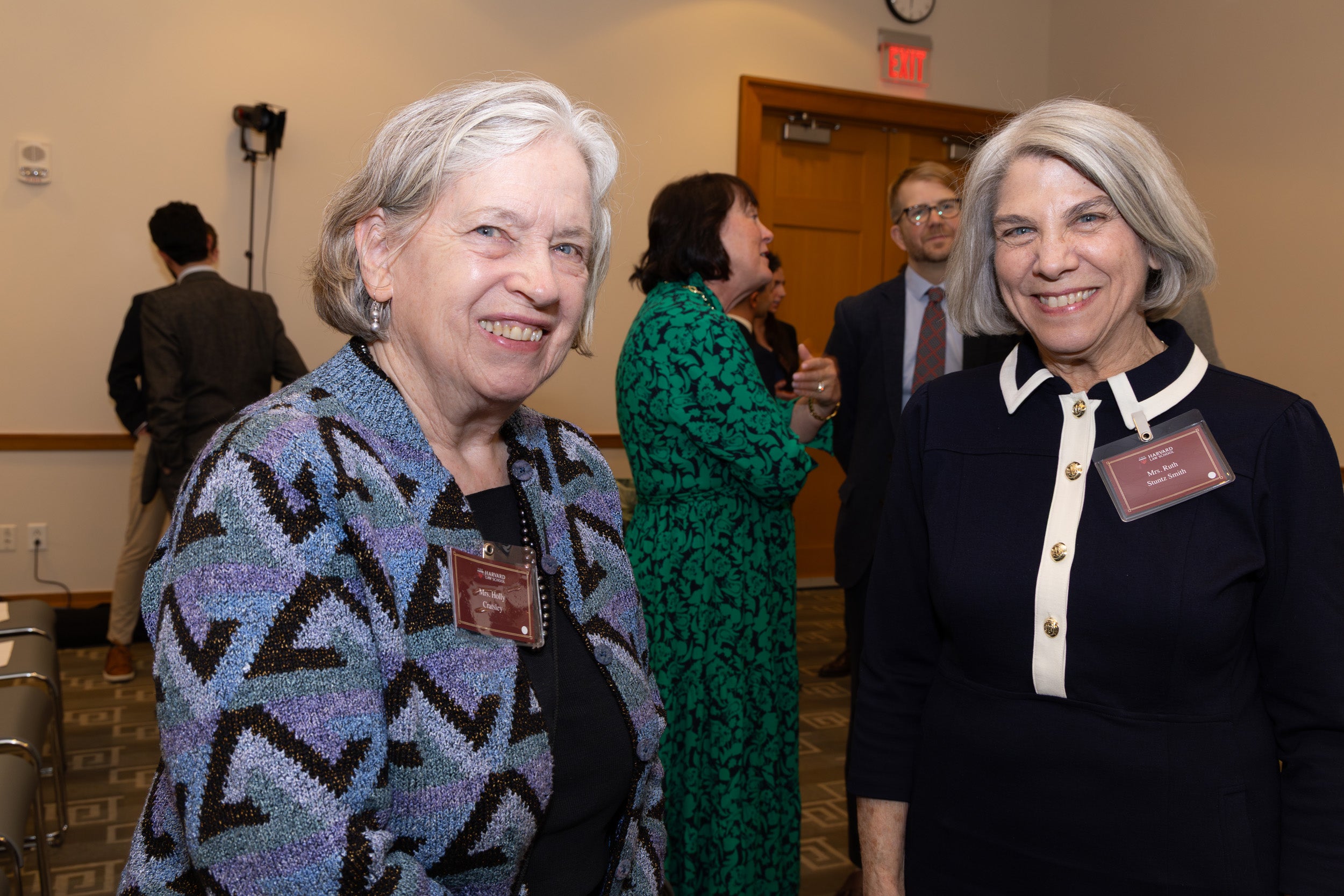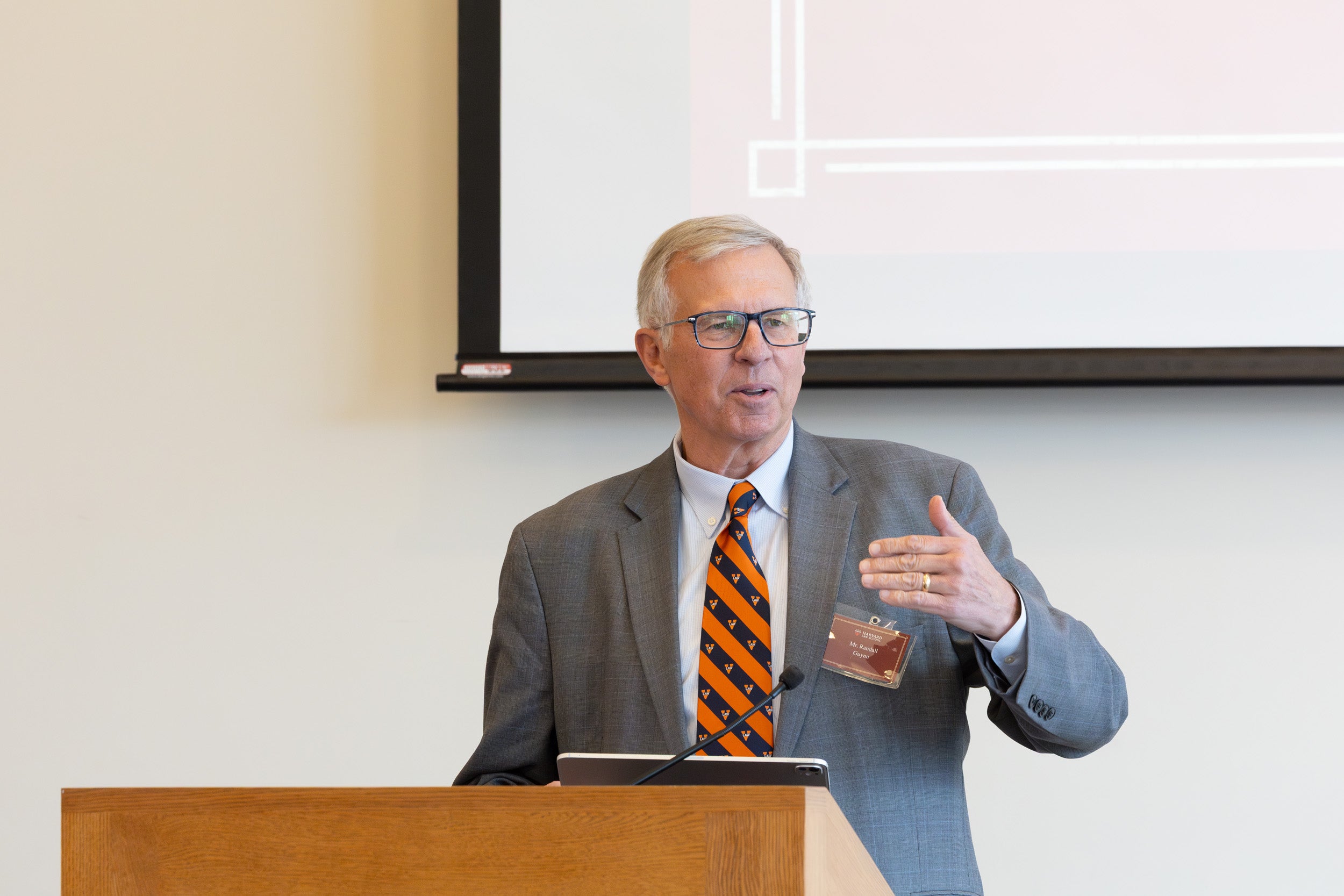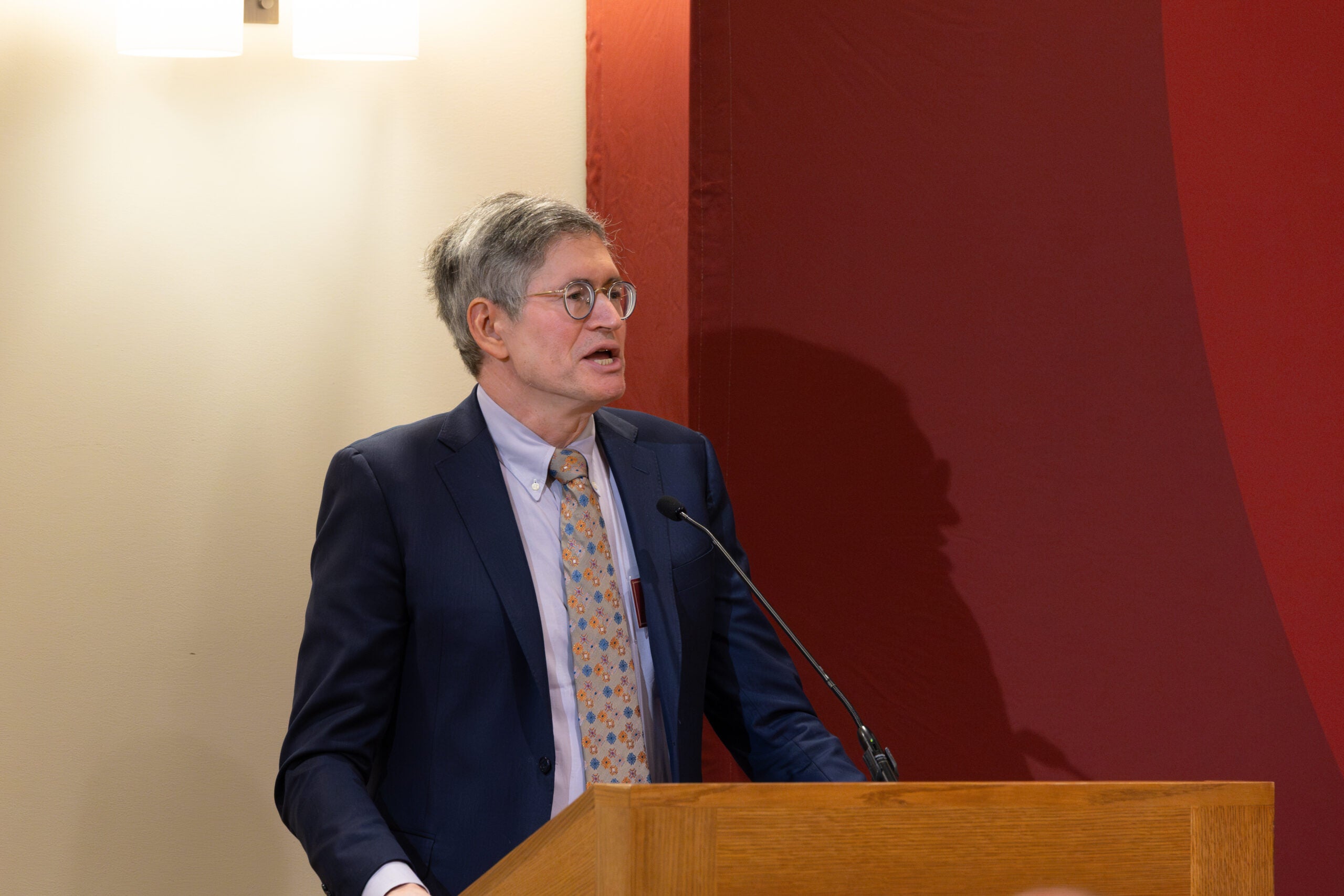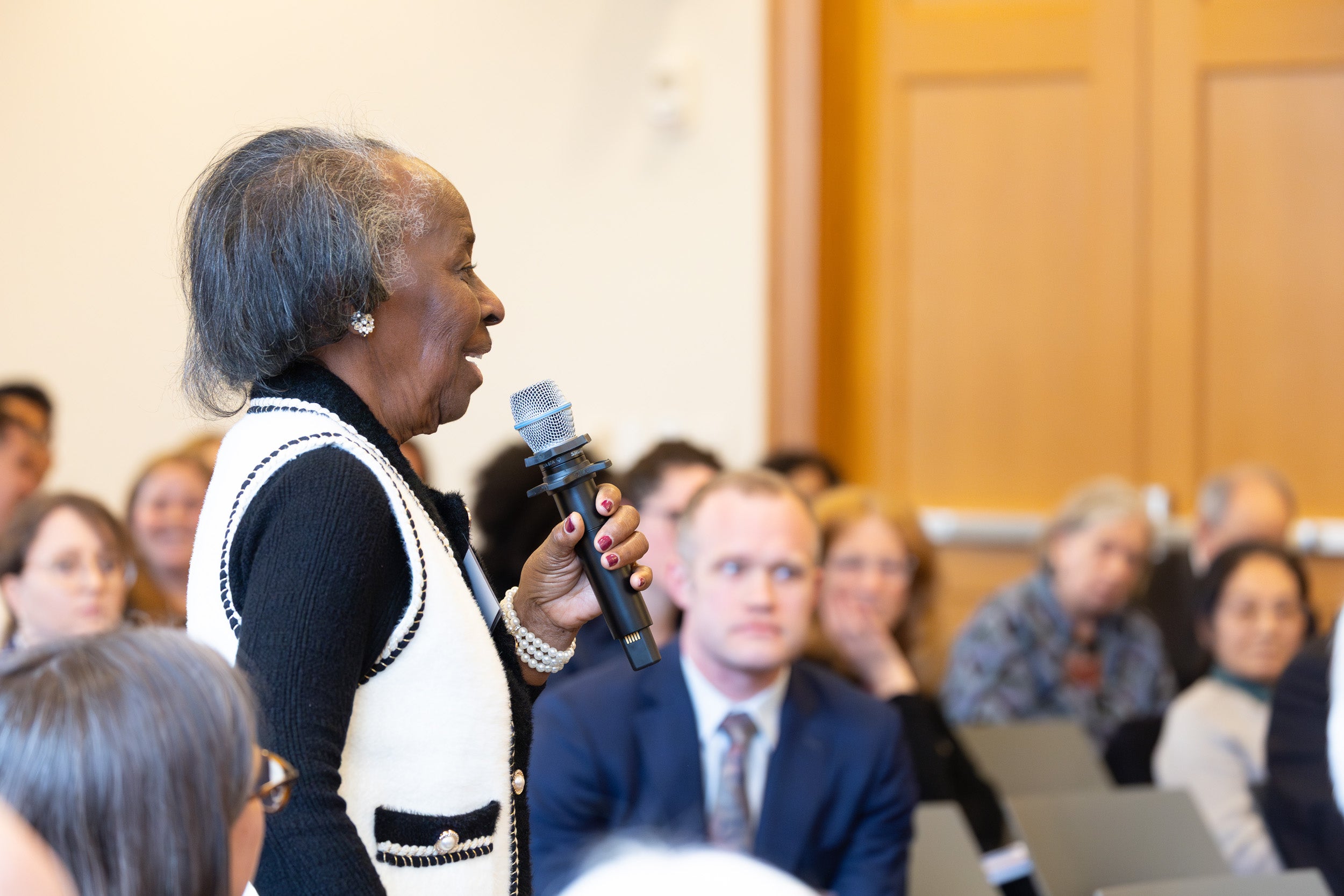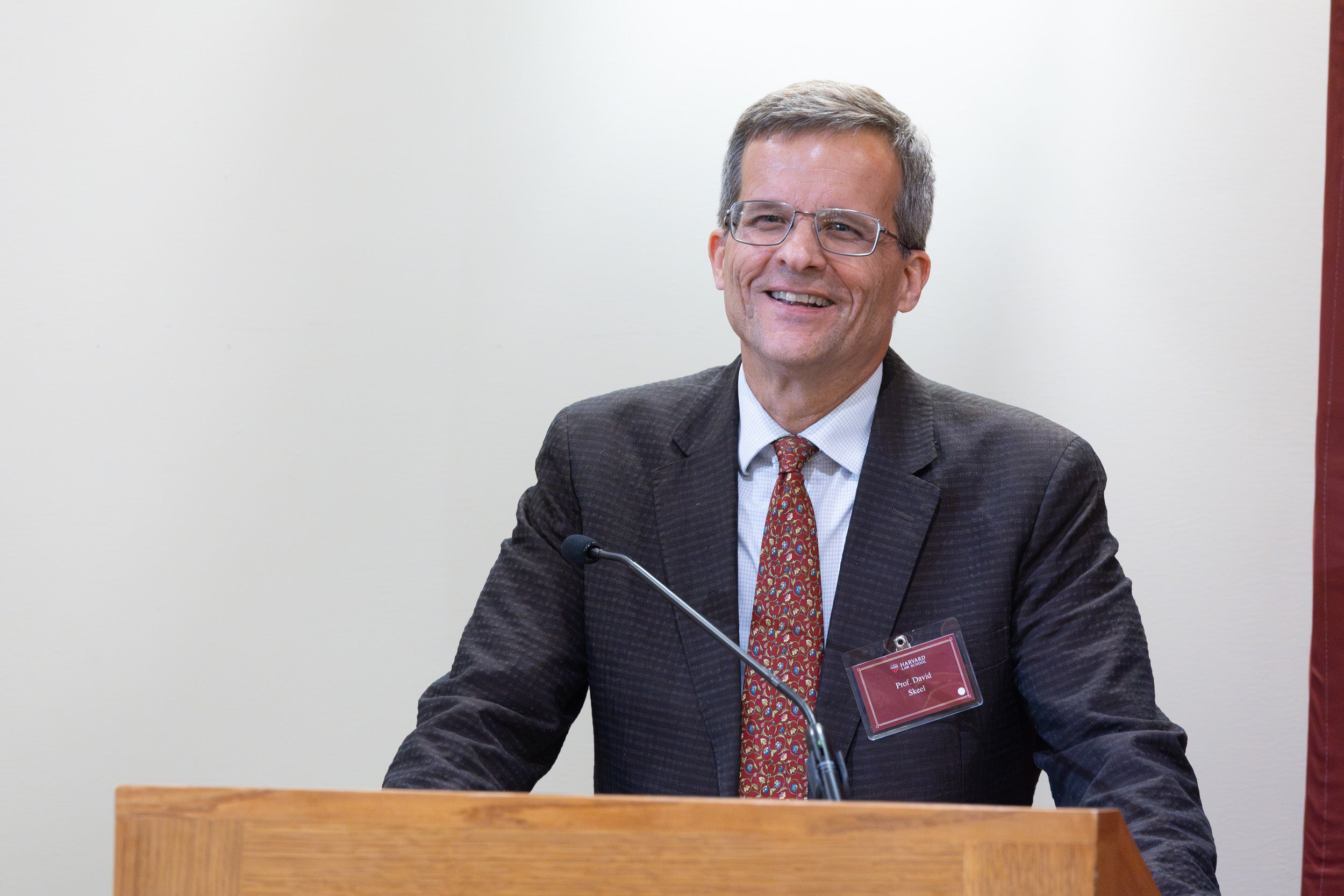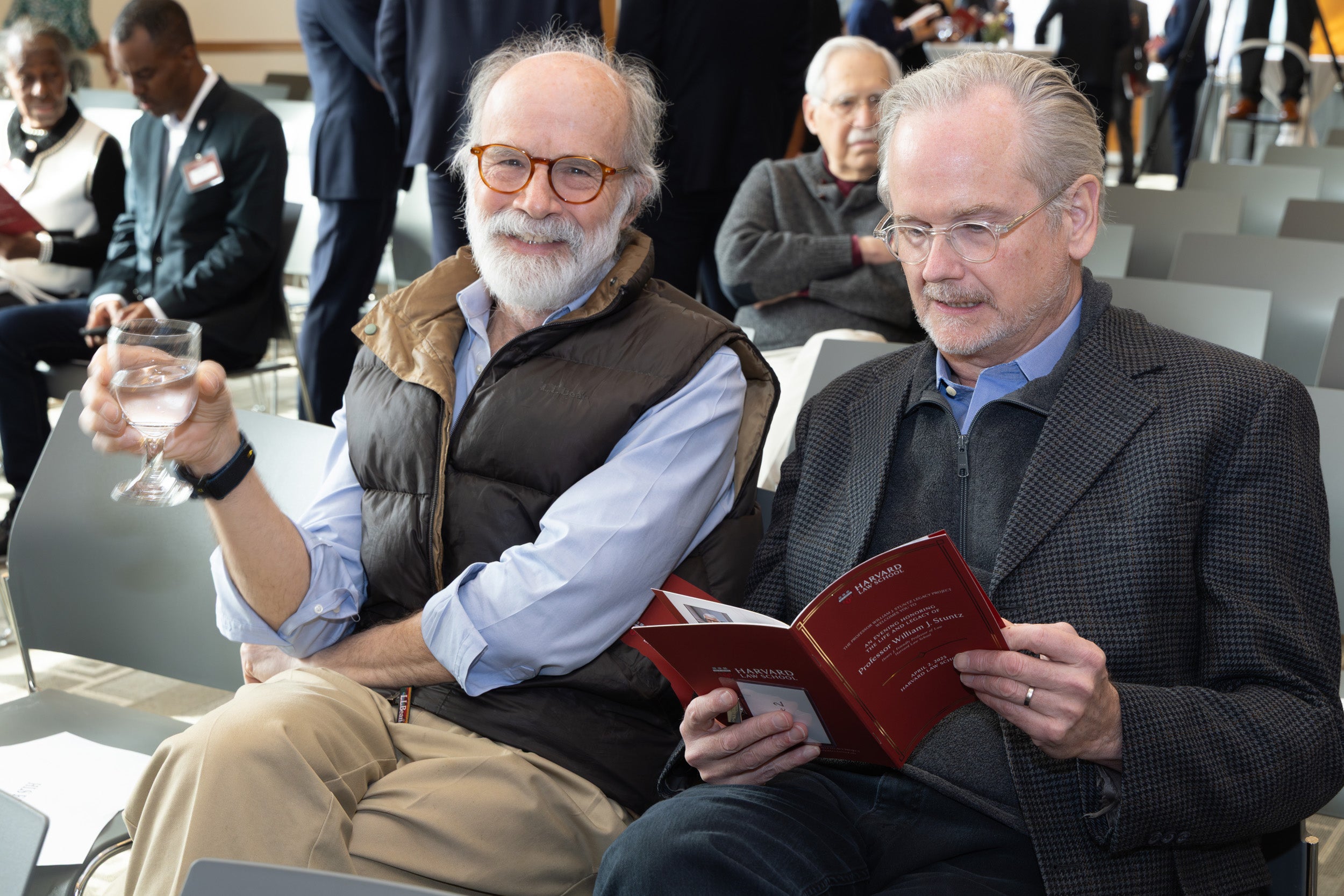For William J. Stuntz, the law and religion were inseparable.
At a recent gathering to honor the late Harvard professor and influential scholar on criminal law and procedure, who wrote extensively on Christianity and legal matters, Jack Goldsmith recalled how his longtime friend and colleague infused his life and work with a kindness and care inspired by his strongly held evangelical Christian beliefs.
“So many people have noted that Bill’s faith permeates his legal scholarship and its emphasis on mercy and compassion, on the criminal justice system’s failure in these regards, and its focus on equality and justice for the vulnerable, the marginalized, and the oppressed, in his critique of what he called the disaster of criminal justice in our time, especially its deep racism, and in his commitment to the possibility of redemption and reform,” said Goldsmith, Harvard’s Learned Hand Professor of Law. “But Bill’s faith radiated far beyond his criminal law scholarship.”
Stuntz joined the Law School faculty in 2000 and was named the Henry J. Friendly Professor of Law in 2007. He died in 2011 at age of 52 after a long battle with cancer, but his insights and scholarship involving Christian legal theory, his groundbreaking contributions to the fields of criminal law and procedure, and his influence as a gifted mentor, giving friend, and gracious colleague live on at Harvard and beyond.
On April 2, friends, family, co-workers, and students celebrated his life at an event sponsored the William J. Stuntz Legacy Project, an initiative of Harvard Law School’s Program on Biblical Law and Christian Legal Studies. The Stuntz Legacy Project, an initiative of the Program developed with the help of Jeremiah Smith Jr., Professor of Law Ruth L. Okediji LL.M. ’91 S.J.D. 96, is devoted to remembering and promoting Stuntz’s vision and values. The afternoon and evening assembly featured a range of speakers, including Randall D. Guynn, David A. Skeel, Lael Weinberger, Qingyue Li ’24, and Harvard Law School professors Michael Klarman, Charles Warren Professor of American Legal History, Carol Steiker ’86, Henry J. Friendly Professor of Law, and Adam Sandel ’08, Climenko Fellow and lecturer on law.
Sandel, a former assistant district attorney and current Climenko Fellow, recalled how Stuntz’s work on prosecutorial discretion helped inform his thinking and work. “Stuntz’s work leaves us with urgent challenges,” he said. “Ultimately, we have to imagine a justice system grounded not only in rules and procedures, but in understanding, balanced sympathy, and forgiveness.”
Guynn, a friend and classmate of Stuntz at the University of Virginia Law School and the current chairman of the Financial Institutions practice at Davis Polk & Wardwell, said he was so glad to see the vision for the Bill Stuntz Legacy Project come to fruition — with the support of Okediji and fellow UVA classmate Judge Thomas Griffith — at Harvard Law School. “I hope this is first of many events in honor of Bill Stuntz,” he said.
Li, who worked on the database of Stuntz’s writings in conjunction with the Stuntz Legacy Project while a law student last year, told the audience working on the project was one of her “most poignant, precious experiences” while at HLS. “As I walked through his words, I encountered a man intimately and vibrantly familiar with grace,” she said.
Goldsmith, who worked with Stuntz at the University of Virginia Law School before becoming his Harvard colleague, titled his keynote address “A Citizen of Heaven and Harvard,” noting he’d been given a large task “because Bill lived a large life in his 52 years, and he left a very rich legacy.”
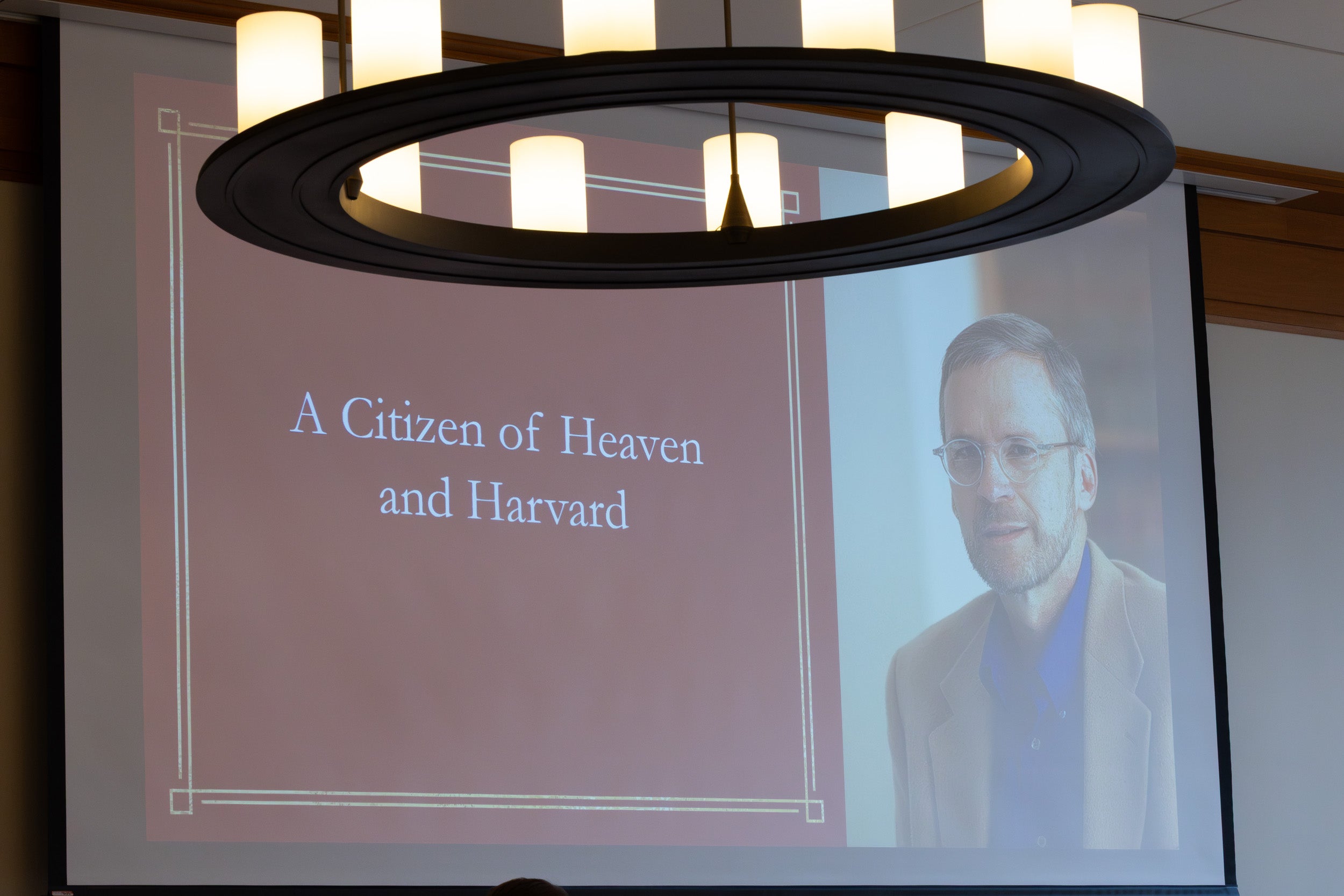
Goldsmith and Stuntz met in Virginia in the mid-1980s. Goldsmith was considering a career in legal academia, and he’d heard Stuntz was an “accessible and helpful professor” at the University of Virginia, so he invited him to lunch. Initially a little intimated, Goldsmith was soon at ease “because Bill was so unpretentious, because his intellectual curiosity was so infectious, because he seemed to take my fledgling ideas seriously, and because his massive intelligence was tempered by an arresting humility.”
In his remarks, Goldsmith discussed how Stuntz had integrated his faith and his work, describing the five keys Stuntz had outlined for “how to be faithful and really enter into communities like Harvard.” Being open about Christian identity and doing good professional work were the first two keys to how Stuntz embodied his faith at Harvard and beyond.
His third key was loving thy neighbor (or colleague). For Stuntz, central to living your faith, said Goldsmith, was “loving the people who God puts in your path. God put in Bill’s path a lot of people who were very, very different from him, yet he responded to everyone with a charitable love. And it had an impact.” Even political discord couldn’t eclipse true connection, added Goldsmith. “Through his example, he taught us that political disagreements are often about means rather than ends, and that more is to be gained by empathizing and understanding our political opponents than by demonizing them.”
For Stuntz, connecting with people from all walks of life was the fourth key to living faithfully, especially at a place like Harvard, said Goldsmith, where he felt that many, including Christians, were focused on “gazing up the ladder,” aiming higher and higher. “Jesus crossed many social barriers to humbly love and serve everyone, and Christians are enjoined to do the same. I think that’s what Bill meant here,” said Goldsmith.
Stuntz’s fifth and final key was humility. He believed that his faith, said Goldsmith, made him “less confident about [his] views, legal or otherwise,” and that “Christian belief is not a club to be wielded against those who do not share that belief. If anything, the club threatens those who hold it. The belief commands that believers see themselves as half-blind fools who are constantly tempted to act in their own interests and to think too highly of themselves.”
In his final comments, Goldsmith pointed to the renaissance of law and religion he has seen take shape over the past decade that can be found in the law school’s classes, academic programs, clinics, and, most importantly, “in the public presence of faith on campus among professors and students, Christians and non-Christian alike.” Goldsmith credited both students and Harvard faculty for the shift, including U.S. Supreme Court Associate Justice and former Harvard Law School Dean Elena Kagan ’86, former Harvard Law School Dean and 300th Anniversary University Professor Martha Minow (who were part of the panel later that evening).
“The renaissance is also a tribute to Bill, who in many ways started it through his witness,” added Goldsmith, “a witness that has lived long beyond his life on earth, and a witness that I hope and believe the William J. Stuntz Legacy Project will steward into the future.”
Want to stay up to date with Harvard Law Today? Sign up for our weekly newsletter.
